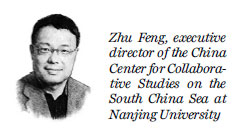BRICS countries have every reason to stand together
(China Daily) Updated: 2016-10-15 06:52More than just a marriage of convenience

Vibrant and emerging as it is, BRICS does have its problems. The vastly different social systems and cultures of the five member states is a big challenge for starters. The growth of BRICS largely depends on the leaders' political will, which has made the annual leadership summits and the establishment of the BRICS New Development Bank possible. Yet, it needs more institutional efforts and tangible gains to be sustainable.
Besides, the BRICS members are yet to make the most of their cooperation with regard the Belt and Road Initiative. That India shows little interest in participating in the Beijing-proposed Bangladesh-China-India-Myanmar economic corridor, is a case in point. The China-Pakistan economic corridor also needs India's full cooperation to take effect.
Therefore, it has to be made clear what kind of role the BRICS is playing and should play in global governance. It cannot be a marriage of convenience that does not last for long. Closer connections are needed between BRICS cooperation and the Belt and Road Initiative, and the five members need to expand cooperation with more countries along the routes of the Silk Road Economic Belt and the 21st Century Maritime Silk Road. It is shared interests, values and overcoming challenges together that can form a fruitful partnership.
Sun Yanfeng, a Latin America studies researcher at the China Institutes of Contemporary International Relations












